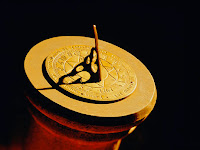At 2 a.m. on March 11 the United States will spring forward three weeks earlier than usual, as the country implements the first change to its time standards since 1986.
 In 2005 Congress passed a mammoth new energy bill that includes a controversial monthlong extension of daylight saving time. Instead of starting on the first Sunday in April, daylight saving will now begin on the second Sunday in March. Daylight saving time will end on the first Sunday in November—one week later than it used to.But the move's energy-saving potential is uncertain and is already being called into question. A study released last year by the U.S. Department of Energy estimates that the change will save less than 1 percent of the country's annual energy consumption. Bob Aldrich of the California Energy Commission told National Public Radio that energy needs in the U.S. have changed a lot since the 1970s, when the data supporting the current bill was collected. "We've become much more electronically configured, if you will," he told NPR. In addition to lights, people plug in more computers, televisions, satellite dishes, and other power-hungry electronics than they did 30 years ago. Meanwhile, advocates such as Massachusetts Democrat Ed Markey, who co-sponsored the bill in the House of Representatives, said the plan is about more than just saving energy. "In addition to the benefits of energy saving, less crime, fewer traffic fatalities, more recreation time and increased economic activity, daylight saving just brings a smile to everybody's faces," Congressman Markey said in a press statement. Some of the bill's boosters cited U.S. Department of Transportation studies from the 1970s while arguing for the change. The studies evaluated the 1974 and 1975 extensions of daylight saving time, which were designed to address the energy crisis spurred by an oil embargo.
In 2005 Congress passed a mammoth new energy bill that includes a controversial monthlong extension of daylight saving time. Instead of starting on the first Sunday in April, daylight saving will now begin on the second Sunday in March. Daylight saving time will end on the first Sunday in November—one week later than it used to.But the move's energy-saving potential is uncertain and is already being called into question. A study released last year by the U.S. Department of Energy estimates that the change will save less than 1 percent of the country's annual energy consumption. Bob Aldrich of the California Energy Commission told National Public Radio that energy needs in the U.S. have changed a lot since the 1970s, when the data supporting the current bill was collected. "We've become much more electronically configured, if you will," he told NPR. In addition to lights, people plug in more computers, televisions, satellite dishes, and other power-hungry electronics than they did 30 years ago. Meanwhile, advocates such as Massachusetts Democrat Ed Markey, who co-sponsored the bill in the House of Representatives, said the plan is about more than just saving energy. "In addition to the benefits of energy saving, less crime, fewer traffic fatalities, more recreation time and increased economic activity, daylight saving just brings a smile to everybody's faces," Congressman Markey said in a press statement. Some of the bill's boosters cited U.S. Department of Transportation studies from the 1970s while arguing for the change. The studies evaluated the 1974 and 1975 extensions of daylight saving time, which were designed to address the energy crisis spurred by an oil embargo. 
No comments:
Post a Comment